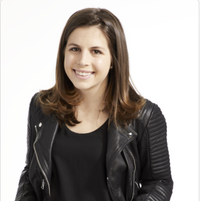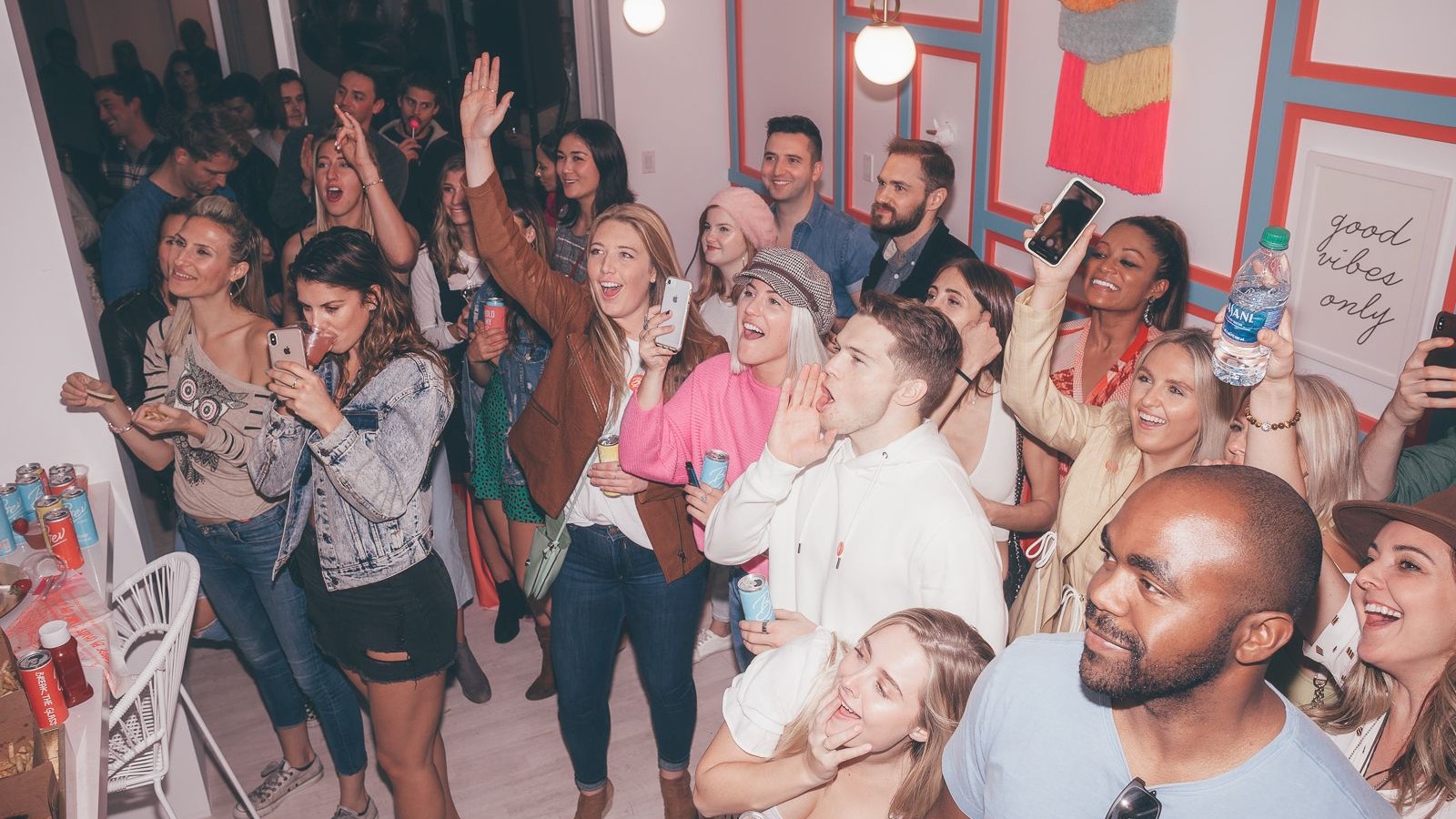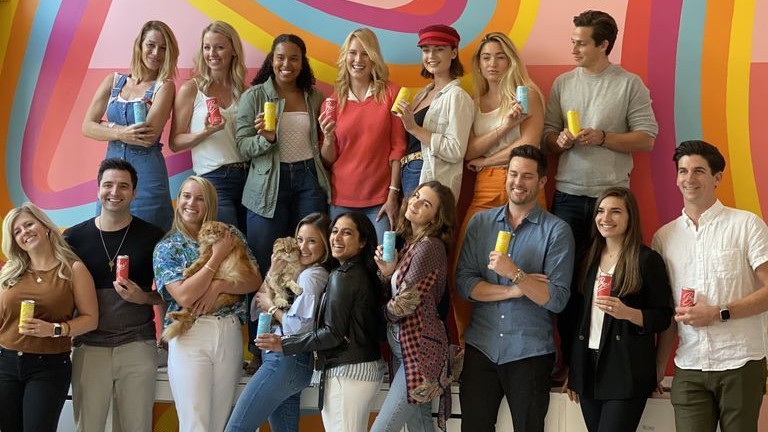I Started a Company to Pay Off the Cost of Freezing My Eggs
A rare medical emergency meant Alix Peabody needed money, fast. So, she started a business.

When I was 24, I was living in San Francisco doing executive head hunting for tech companies around Silicon Valley. I had been having chronic health issues for years and nobody could quite figure out what it was. I had started feeling pain in my abdominal near the end of college; at the time, I thought it was indigestion or maybe Crohn's Disease. I would go to the doctor and they would tell me over and over again there’s nothing wrong. But I knew something was up: The pain, though on-and-off, was very debilitating, to the point where it was difficult to walk.
One day, I was walking to work and keeled over in the street from the sudden pain in my abdomen. I was rushed to the ER and was operated on that night. It turns out my pain over the past few years wasn’t nothing. Doctors discovered that I had a strange condition that accounts for less than 1 percent of all emergency ovarian surgeries—it’s called ovarian torsion. The ovary twists on itself, and as it does so, it restricts blood flow to your organs, which can cause organ failure. Normally, your ovary is the size of a walnut. My right ovary was so swollen, it was the size of a grapefruit. My ovary would torque and then it would un-torque, which is why doctors had trouble figuring out exactly what it was. Ovarian torsion is hard thing to diagnose unless your ovary torques in the very moment when you’re being evaluated. Apparently, I have a relatively high pain tolerance, which is great to know as an entrepreneur. You need it.
Eventually, with ovarian torsion, the organ starts to die because it has no blood flow. Most people lose their ovary in that case. I ultimately ended up losing mine, but before that, I underwent multiple surgeries to try to save it. During that time, I had to make a pretty hard decision for anyone—especially when you’re only 24. I had to decide if I wanted to freeze my eggs.
It was pretty interesting to be so young and to, in a way, have what it means to be a woman come into question. I come from a big family and I’ve always wanted a family, so the risk of not having that option was really scary. I didn’t expect how strangely liberating the whole process would be—before that point, I hadn’t thought much about the decisions I was making, not realizing that I was making them about a future that did not exist. That’s when I started thinking about building something myself more seriously. It was a big wake-up call.
Unlike some of my other medical bills, the cost of freezing my eggs (including the medication you have to take afterward) wasn’t covered by insurance. The total expenditure was around $20,000. I would joke, ‘Kids are so expensive, and I don’t even have them!’

To pay off those bills, I started an event company—I wouldn’t even call it a business at the time, it was more just How do I make enough money to freeze my eggs? It was very much out of necessity. When I’d first moved to San Francisco a few years earlier (from Connecticut, where I worked at a hedge fund), I threw a big party to meet people and to make friends. In months after, people kept asking if I was going to do it again. So, I decided to start throwing parties, but this time making them ticketed, in order to pay off my medical bills. I didn’t tell people what the parties were for.
I was super scrappy—I put a lot of the costs of the parties on my credit card. I got my friend who works at Google to rent the Google Bus, which would pick up party goers around 10 a.m. outside of a liquor store so that they could get booze for the ride, and I would negotiate with the liquor store to get a cut of sales (I was, after all, sending 200 people to a liquor store at 10 AM on a Saturday). My aunt and uncle had a house in Sonoma with a huge outdoor space and a pool, so I would host the parties there. The people that came were often in venture capital or tech—many would later become entrepreneurs. People loved the parties because I made sure they were a safe space—everyone was welcome, and respectful drinking culture was paramount.
Get exclusive access to fashion and beauty trends, hot-off-the-press celebrity news, and more.
Eventually, tickets for my parties went for $200 a pop. There would be at least 200 attendees at any one party, at most 400. Every time I threw a party, I made a couple thousand dollars. Soon, I had cleared about two thirds of the cost of the egg-freezing, and my parents helped me pay off the rest.
After I had paid off those bills, I was done with San Francisco; I associated it with a lot of pain and misery. I was just ready to move. Originally, I thought I wanted to build some sort of media and events platform, so I moved to L.A. I still was really interested in the social scene—how people interact when they’re at their most vulnerable, when they’re drinking, when they’re trying to make friends. Through my parties, I had seen how alcohol, at the end of the day, is a social lubricant. The wheels started turning. I started thinking, what would a company look like—what would it feel like—if we made the social scene more approachable for women? That was the beginning of my beverage company, Bev, built around the idea that drinking culture can be more female-friendly. Of course, I had to figure out how to fund it.
I genuinely had no idea that I still had a 401k from my first job after college, but then information on my old benefits started arriving in the mail. Before I took the job, a friend advised me to max out my 401k. It took me a while to sort it all out, but as it turns out I had $30,000 built up from the couple years in the hedge fund. Not recommended, but I cashed it all out to fund my business idea. After taxes, I had about $20,000.
That money bought me my first product, about 300 gallons of rosé. At the time, I wasn’t even licensed to sell alcohol, so technically the rosé was for personal consumption or personal use. I took it to a bunch of different parties and events for people to try it. I strategically placed it where I knew that investors were going. The very first logo on the can was my cousin’s handwriting.

That was pretty much all I had. In retrospect, I don’t know that I could do that again—it was very isolating. I had the product that I’d cashed everything in for, I had a bunch of credit card debt, and I had a cat.
My dad gave me the number of a lawyer in New York, and I convinced the law firm to invest their time in me and do all this work to get me incorporated without getting paid until I'd received funding—if I received funding. I must have spoken to hundreds of people throughout the course of fundraising. Booze is a tricky space to raise capital for; a lot of venture capital firms have vice clauses, meaning that they’re not allowed to invest in alcohol, tobacco, firearms, or sex toys. Eventually, we were picked up by Southern Glazer, which is the largest wine and spirits distributor in the country. Then, in April 2019, we closed with a $7 million investment from Founders Fund. Now, we're a company of 21 employees on a mission to disrupt the beverage space. Right now, we're available in California, Texas, Tennessee, Colorado, Nevada, and Massachusetts, and online in 44 states, with our eyes on nationwide distribution.
The beverage space is probably one of the most antiquated in America today. I really believe that it is a space that needs a voice that represents women and people who are different. Breaking the glass, so to speak, has been a really up-and-down ride and up-and-down experience. There are people who have embraced us in such a strong and powerful way, but I have also been met with resistance. I've heard things like, Don’t we already have a woman in wine?
The beverage industry is fun, it’s social, it’s happy by nature. I think it’s important for Bev to really emphasize that that’s who we are. We’re about having fun in a respectful way. It’s not about just selling rosé. For me, it’s building a brand that really stands for something and encourages people to explore new points of view.
Megan DiTrolio is the editor of features and special projects at Marie Claire, where she oversees all career coverage and writes and edits stories on women’s issues, politics, cultural trends, and more. In addition to editing feature stories, she programs Marie Claire’s annual Power Trip conference and Marie Claire’s Getting Down To Business Instagram Live franchise.
